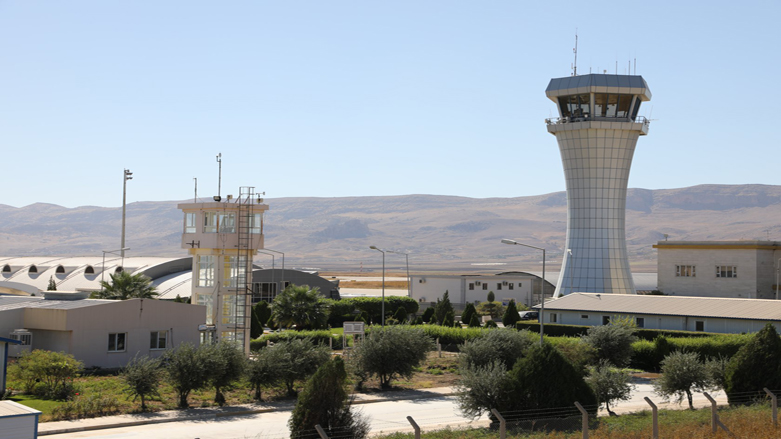Turkey announces end to ban on Sulaimani Airport

The Turkish Ministry of Transport on Wednesday announced it was lifting its embargo on flights between Turkey and the Sulaimani International Airport, located in the Kurdistan Region.
“The Sulaimani flight ban will be lifted on Jan. 25. Istanbul-Sulaimani flights will be serviced seven times a week,” Transport and Infrastructure Minister, Cahit Turhan, was quoted as saying by Anadolu Agency.
Ankara’s ban has been in effect for over a year and came following the Kurdistan Region’s independence referendum in September 2017. It first included both the airports in the capital of Erbil and Sulaimani as part of an international travel ban imposed by Baghdad. However, in March 2018 after Baghdad lifted its ban, Turkey agreed to resume flights only to Erbil.
Ankara’s continued embargo was based on allegations that both the Patriotic Union of Kurdistan (PUK) and the Gorran (Change) Movement – the dominant two parties in the province of Sulaimani – had been providing support for the Kurdistan Workers’ Party (PKK). The PKK is Kurdish group fighting for broader rights in Turkey which Ankara, the United States, and the European Union have designated a “terrorist” organization.
Despite appeals and concerted efforts by Sulaimani and airport authorities, Ankara extended the embargo by three additional months in late December. In early January, Iraqi President Barham Salih, a leadership member of the PUK, visited Turkey and was reported to have brought up the issue during a meeting with President Recep Tayyip Erdogan.
In tandem with diplomatic efforts, Sulaimani’s security forces (Asayish) – which the PUK has significant authority over – continued a months-long crackdown on Tavgari Azadi, a party with apparent links to the PKK.
In late November, security in Sulaimani closed multiple offices of Tavgari Azadi in the city and elsewhere in the province. The party alleged that the move had come on the orders of the PUK.
More recently, Sulaimani Asayish also blocked the screening of a PKK-related film at a public park theater and arrested some present, some of whom were reported to have been members of the PKK-affiliated group. Three days prior to this, security closed down the city’s Salim Cinema for planning to screen the same film.
Local authorities say that the reasoning behind their campaign against Tavgari Azadi’s political activities is based on them not being a registered party in the Kurdistan Region. The party claims, however, they had submitted the required documentation to be officially recognized as a political entity to the Kurdistan Regional Government’s (KRG) Interior Ministry and that the closures were a clear act of appeasement toward Turkey.
The law dictating the processing of such paperwork states that the Interior Ministry will review the documents of claimants within 30 days of their submission. Upon approval, the Interior Ministry is to report to the council of ministers for another review and give their final ruling on the matter within 45 days.
If the ministerial council fails to respond within the appropriate timeline, the applicant is duly recognized as an official entity. However, it is unclear if the party’s submission made it past the Ministry of Interior’s background checks.
This could presumably explain the disparity of the two sides’ claims, as the authorities could argue the language of the law, claiming that the Council of Ministers never received the application and thus, an implicit approval for officialdom was never given.
The timing, however, would seem to suggest something more than a mere clerical issue.
Whatever the status of Tavgari Azadi, for Sulaimani’s authorities and the PUK specifically, one thing is clear: the embargo caused significant financial hardship for the province’s government and people.
“The Turkish flight ban has damaged Sulaimani airport’s revenue by $5.4 million over the past year,” Tahir Abdullah, Director of Sulaimani Airport, said in a press conference.
According to Abdullah, imports dropped by 73 percent and exports by 82 percent in 2018, a major blow to an airport that had previously been collecting approximately fifteen thousand dollars per days in customs and other fees.